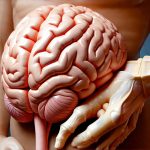The intricate relationship between our digestive system and our brain is far more profound than previously understood. For years, these were considered largely separate entities, but emerging research reveals a complex bidirectional communication network known as the gut-brain axis. This axis isn’t simply about digestion impacting mood or vice versa; it’s a dynamic interplay that influences everything from cognitive function and emotional regulation to immune response and even neurological disorders. Understanding this connection is crucial for appreciating the holistic nature of health and wellbeing.
This sophisticated system involves direct pathways like the vagus nerve, as well as indirect routes including the immune system, endocrine system (hormones), and metabolic pathways. The trillions of microorganisms residing in our gut – collectively known as the gut microbiota – play a pivotal role in this communication, acting as key mediators between the digestive system and the brain. This article will explore the intricacies of the gut-brain axis, its mechanisms, and its far-reaching effects on overall health.
What is the Gut-Brain Axis?
The gut-brain axis (GBA) describes the two-way communication network connecting the gastrointestinal tract and the brain. It’s not a single pathway, but rather an integrated system involving neurological, immunological, endocrine, and metabolic signaling. This constant dialogue allows for ongoing information exchange between the gut and the brain, influencing both physical and mental states.
This interconnectedness explains why digestive issues can sometimes be linked to mood changes or anxiety, and conversely, why stress can manifest as gastrointestinal distress. The GBA is a relatively new area of intensive research, but it’s rapidly changing our understanding of health and disease.
Effects on Health & Wellbeing
The influence of the gut-brain axis extends far beyond digestion and mood. It impacts various aspects of overall wellbeing, including cognitive function, immune regulation, and susceptibility to neurological conditions. The composition and diversity of the gut microbiota are particularly important factors in determining the strength and effectiveness of this communication network. An imbalanced microbiome (dysbiosis) can disrupt GBA signaling and contribute to a range of health problems.
Cognitive Function & Mental Health
The gut microbiota produces neurotransmitters, such as serotonin, dopamine, and GABA, which play crucial roles in regulating mood, emotion, and cognitive processes. Approximately 90% of serotonin, often dubbed the “happy hormone,” is produced in the gut. Furthermore, inflammation within the gut can impact brain function, potentially contributing to conditions like anxiety, depression, and even neurodegenerative diseases. Research suggests that modulating the gut microbiome through dietary changes or probiotic supplementation may have positive effects on mental health outcomes.
The GBA’s influence extends to cognitive functions like learning and memory. Studies in animals suggest a link between gut microbiota composition and spatial memory, highlighting the potential for gut health to impact brain plasticity and cognitive performance. This is an emerging area of study with promising implications for preventative strategies related to age-related cognitive decline.
Immune System Regulation
A significant portion of the immune system resides in the gut, making it a critical site for immune regulation. The gut microbiota actively interacts with the immune cells, helping to train and develop the immune response. A healthy and diverse microbiome strengthens the gut barrier, preventing harmful pathogens from entering the bloodstream. Conversely, dysbiosis can weaken the gut barrier, leading to increased intestinal permeability (often referred to as “leaky gut”) and systemic inflammation.
Chronic inflammation is linked to a wide range of diseases, including autoimmune disorders, cardiovascular disease, and cancer. Therefore, maintaining a healthy gut microbiome through diet and lifestyle choices is essential for supporting immune function and reducing the risk of chronic illness. The GBA plays a vital role in this delicate balance between immunity and tolerance.
Neurological Disorders & Disease
The connection between the gut and brain is increasingly recognized as relevant to neurological disorders like Parkinson’s disease, Alzheimer’s disease, and multiple sclerosis. In Parkinson’s disease, for example, changes in the gut microbiome have been observed years before the onset of motor symptoms, suggesting a potential role in disease initiation and progression. Similarly, research indicates that alterations in gut microbiota composition may contribute to neuroinflammation and amyloid plaque formation in Alzheimer’s disease.
While the exact mechanisms are still being investigated, it appears that the GBA can influence the development and severity of these neurological conditions. Targeting the gut microbiome through interventions like dietary modifications or fecal microbiota transplantation (FMT) is being explored as a potential therapeutic strategy for managing these complex disorders. This area requires significant further research to establish effective treatments.
The gut-brain axis represents a paradigm shift in our understanding of health, moving beyond isolated organ systems towards a more holistic and interconnected view. While still an evolving field, the growing body of evidence underscores the importance of nurturing a healthy gut microbiome for optimal physical and mental wellbeing. Focusing on dietary choices that promote microbial diversity, managing stress levels, and prioritizing adequate sleep are all practical steps individuals can take to support their gut-brain axis and reap its numerous benefits. Ongoing research continues to unveil the complexities of this fascinating system and promises to unlock even more effective strategies for preventing and treating a wide range of health conditions in the future.


















